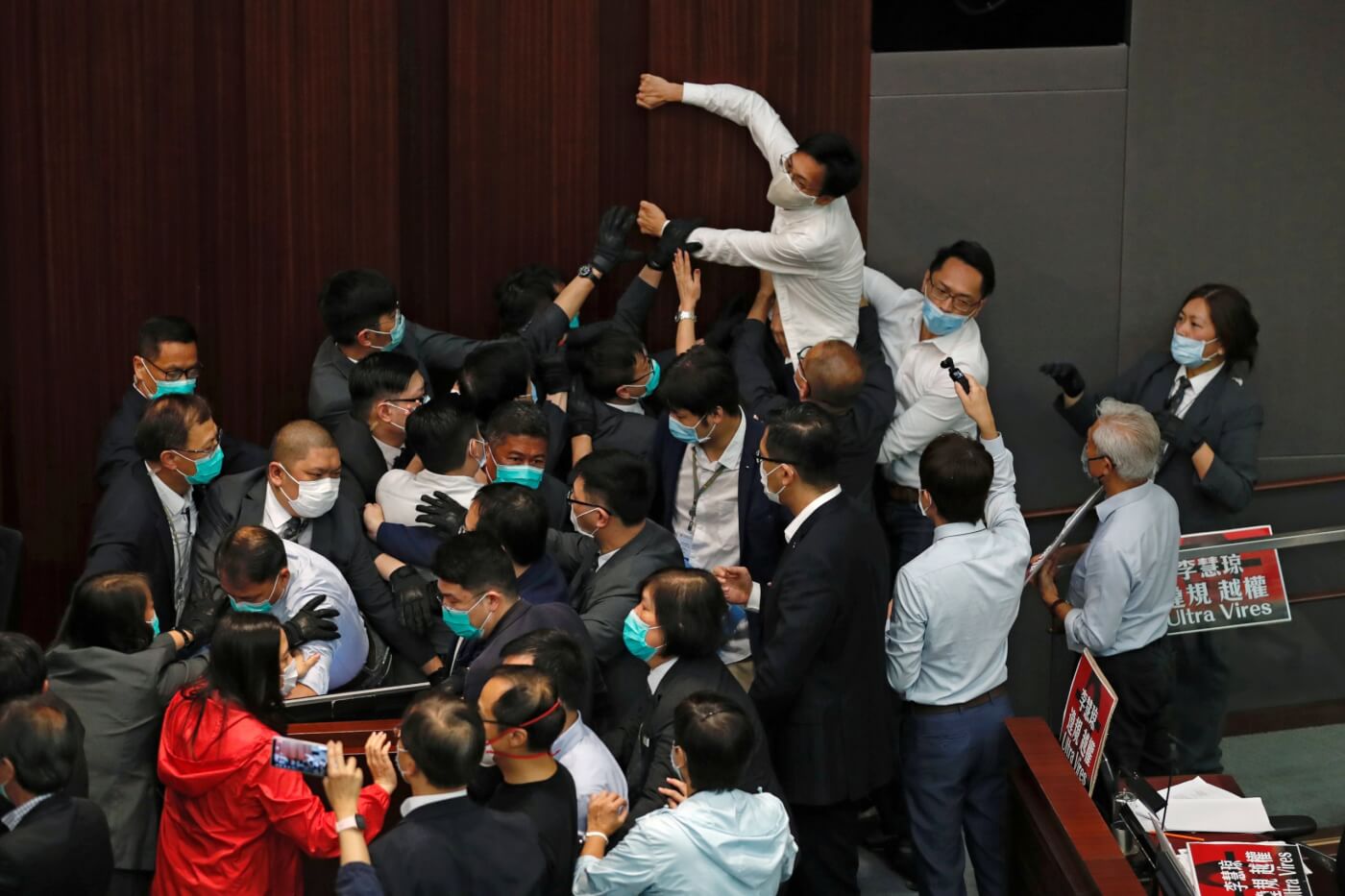The China Research Group has produced a new report, detailing recommended steps the UK should take to develop its relations with China. The report suggests both immediate and long term strategies to improve UK-Chinese relations, but it was released amongst continuous reports of Chinese and Hong Kong police detaining more pro-democracy figures.
Human Rights concerns
The research group was set up by Conservative MPs to deepen an understanding of how the UK should respond to the rise of China as a global power. Written by Charles Parton, a diplomat to China, the report terms relations with China as a “Values War”. According to Parton, this term signifies that the Chinese Communist Party (CCP) is not intent on spreading its political system or ideology around the globe, but desires influence of their governance in human rights, internet and technology, and surveillance of society.
The report states that the CCP should be expected to abide by the values enshrined in the Universal Declaration of Human Rights, and also the UN covenants that it has signed. It is critical of China’s human rights abuses, namely its actions in Hong Kong, Tibet and Xinjiang, its crackdown against human rights lawyers, its “Police Cloud” system of technological surveillance, and its controls on free speech. The CCP has “strengthened itself politically with its control over government and society; any experimentation with wider elections at the grassroots level, or with greater intra-Party democracy has ceased”.
The “709 crackdown” in July 2015 saw the arrest of over 300 lawyers, legal assistance and activists, many who are still imprisoned or under surveillance after their release. In October 2020, the UN General Assembly voted to elect a new tranche of 15 Human Rights Council members, including China, despite the ongoing abuse of Uighur Muslims in the region of Xinjiang. It is estimated that up to three million Uighur Muslims are detained in what China called “re-education camps” and are subject to abuse and torture.
The report also specifically addresses the CCP threats of unification of Taiwan, which threatens Taiwanese democracy and the fate of 23 million people. Highlighting the fundamental human right to choose their government and society, the report presses the UK government to inform China that any forceful takeover of Taiwan will invoke a severe reaction, such as the breaking of diplomatic trade and relations. Whilst acknowledging that the reaction may be unpleasant, Parton concludes that the CCP will take note due to the risk of economic fallout, trade and investment, and general unrest on the mainland which could lead to a challenge to its rule.
Latest crackdowns
The report was released amongst reports that seven pro-democracy legislators were arrested on 1 November 2020, over a parliamentary meeting which erupted in chaos last May.
Wu Chi Wai, Andrew Wan, Helena Wong, Kwok Wing Kin, Eddie Chu, Raymond Chan and Fernando Cheung were under investigation by the Public Order Event Investigations team on “suspicion of contempt and interference with LegCo officers.” During the meeting on 8 May 2020, pro-democracy and pro-Beijing lawmakers clashed, throwing placards, physically trying to climb over crowds and reach the meeting’s chair, Starry Lee. The opposing sides were conflicted over controversial legislation that was being pushed through by Lee, who is pro-Beijing, and questioning the legality of his control.
The arrests are part of a widespread crackdown on pro-democracy movements, including legislators and activists, often using the new national security law implemented in June 2020 which has caused controversy over its vague wording and breach of international human rights law. At least 27 people have been arrested under the law, including Hong Kong activist Tony Chung on 27 October 2020, who tried to seek asylum at the US consulate.
Britain’s recommended response
Given the instability created by Covid-19, and the acknowledgement of China’s human rights abuses, the report encourages the UK government to take a path of “divergence” with China, meaning that they can agree to disagree on some matters, whilst “maximising cooperation in areas where interests overlap.”
Certain areas are deemed urgent and require immediate action. Firstly, countering foreign interference to protect UK democracy and economic security, by setting up a National Counter Foreign Interference Coordinator’s Office. Secondly, “more stringent oversight of political lobbying” and thirdly, of “elite capture”, in order to create greater transparency between sources of money and investment, to again minimise hostile interference with UK political processes. As China has a great influence in technology, it is recommended that there is greater authority of UK universities and companies to prevent the risk of using surveillance to repress society and contradict the UN covenants. Finally, better oversight of Chinese investment in the UK is needed, “establishing mechanisms to ensure that investment or mergers and acquisitions do not allow the transfer of technology which conflicts with UK security, interests and values.”
Despite Britain being occupied with Covid-19 and the EU, establishing better foundations for a cooperative and productive relationship with China is critical. With the ongoing abuses of human rights and the threat of greater encroachment in Hong Kong and Taiwan, the UK government must be firm in upholding its commitment to universal human rights values, and push for this to be central to any relationship with the CCP.

